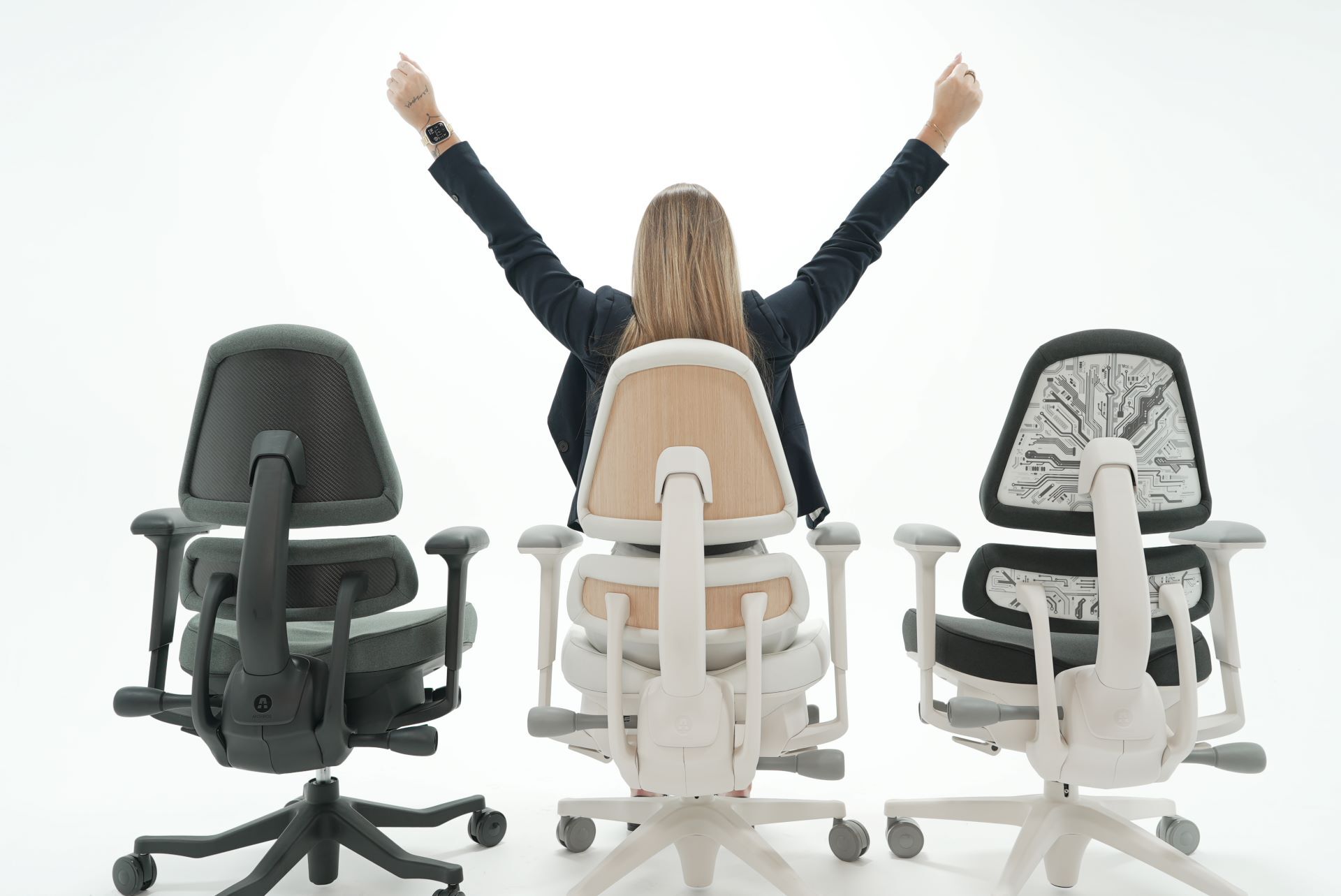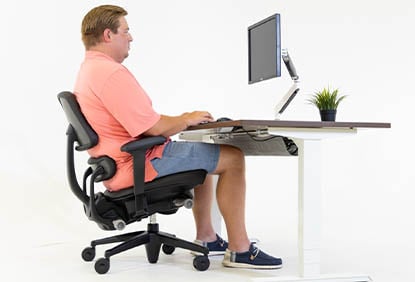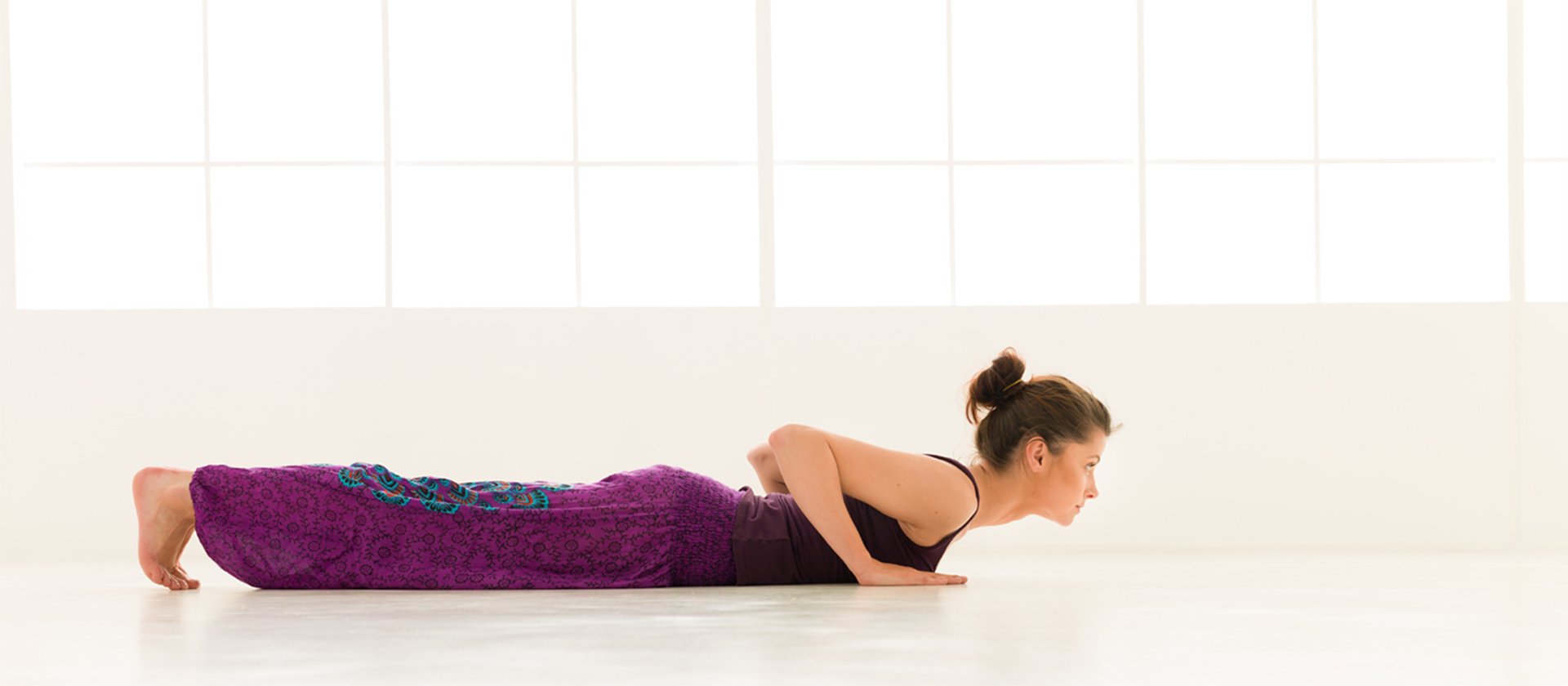Hey you… Stand up and take a look at your office chair seat.
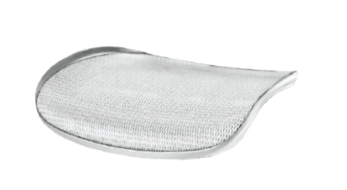
What material is it made of? Mesh? Leather? Upholstered Foam? What does the shape look like?
-
1 Flat
-
2 Rounded from front to back?
-
3 Contoured to match the contours of your backside?
If you answered C, this contoured cushion has all the basics to create less unneeded pain than A and B!
But Why?
That unneeded pain comes from teeny tiny receptors located on your bottom that tell the brain when they are pressed or pulled too hard. These receptors known as nociceptors are like little “tattle tells” and when they are not happy, they run and tell the brain, and then the body moves to take away that stimulus.

You feel heat from the stove and you naturally pull your hand away from the heat.
Now obviously your office chair isn’t a hot stove, but in sitting all of your body weight is pushing down on the pain receptors located around your “Sit Bones” formally known as your ischial tuberosities and coccyx. We need to take the pressure off of these sit bones to increase our comfort.1 See here
Do you ever notice that you move a lot in your office chair throughout the day?
If you find yourself constantly adjusting yourself in an office chair, it might be a result of the seat not providing enough off-loading for the pain receptors. Our brain is so smart that we don’t even realize that when we cross our legs, our arms, shift from right to left, or end up pushing ourselves back in our office chairs, it is a result of the chair not hitting us in the right places and our pain receptors are asking us to move. Fidgeting and moving from position to position is the body’s natural defense mechanism.
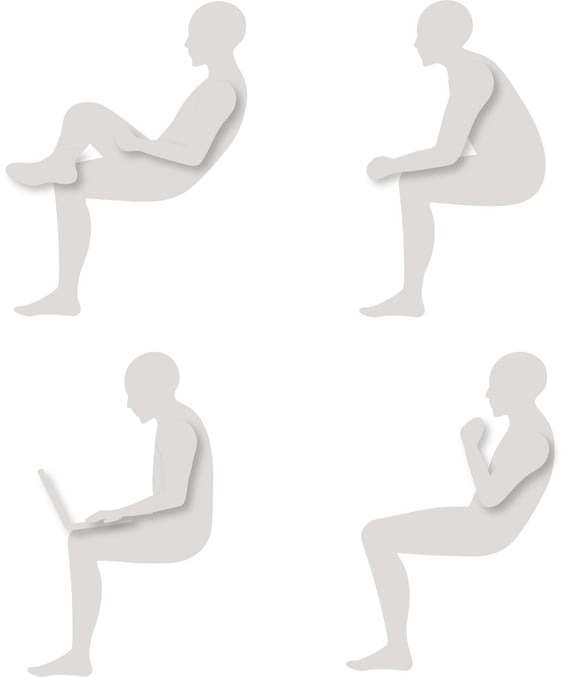
OBJECTIVE MEASURES SUCH AS CHANGES IN POSTURE OR ‘MICROMOVEMENTS’ MAY BE GOOD INDICATORS OF DISCOMFORT.2
Even our pain receptors dictate how our posture is in our office chair.
We subconsciously roll our pelvis backward to protect and take the pressure off of the nociceptors. This results in sliding forward and a slumped posture that can cause cumulative trauma disorder which affects the rest of the body in a negative way.
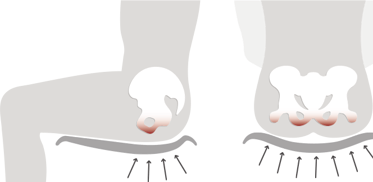
So what is the BEST OFFICE CHAIR FOR poor POSTURE?
Mesh is not the solution and ranks at the bottom of our list to prevent pain.
Mesh is a woven material that adheres to a frame, so you sit on the center and the sides of the mesh that are attached to the frame create unwanted pressure and pain.
This is known as the hammock effect, and over time you will move around to take pressure off of your pain receptors.
The mesh does not help to position your bottom, so sliding forward can also happen, which stretches your nociceptors, another movement they do not enjoy.
Flat shaped office seats either covered by fabric or leather come in as the 2nd worst on our list to prevent pain.
They do not contour to your backside to take the pressure off the sit bones. Take a look at these pressure map images that show the pressure on the sit bones located in the middle of the bottom area on each side.
You want to see blue/green color to indicate less pressure, NOT RED. A flat office chair will also lead to sliding forward and not aiding in positioning your legs in a neutral position. This neutral position reduces hip pain, sciatica, and piriformis syndrome.3,4
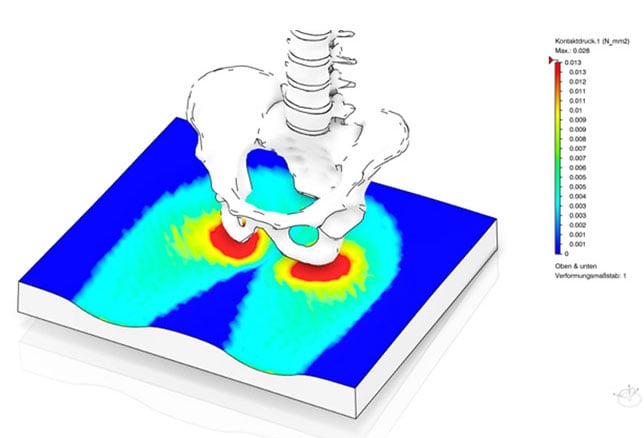
The clear winner in the pack is the contoured seat with premium foam and domed cut outs to take the pressure off the nociceptors and sit bones. The pressure-relieving technology supports your legs in a neutral position, enabling you to sit longer without pain and stop fidgeting to stay more productive at work.
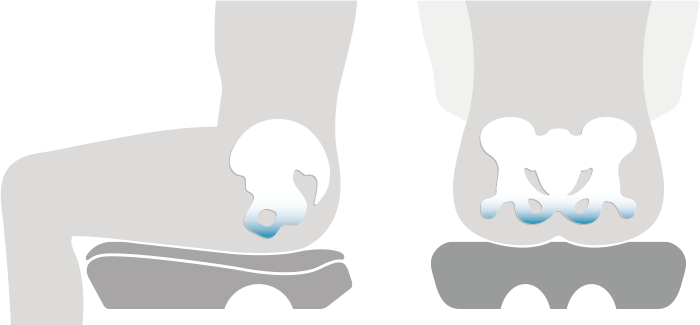
If you are looking to improve posture while sitting, look no further than Anthros. Anthros is the only chair in the world that is guaranteed to improve posture or your money back. The science-backed, patented design, is registered with the FDA as a posture-improving chair and is proven to have the lowest pressure (most comfortable) cushion on the planet (verified by University testing).
Recent Post

Anthros Decompress Mode: A New Way to Sit, Move, and Recover
December 23, 2025Adding a cushion to your office or gaming chair...
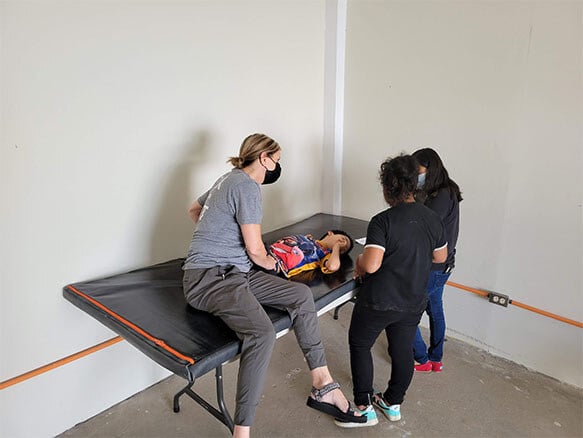
Four Lessons About Seating Everyone Can Learn from Wheelchair Users
September 18, 2025Working with wheelchair users has been an...





